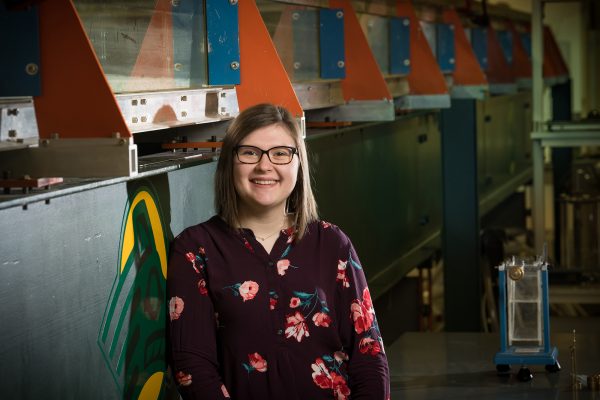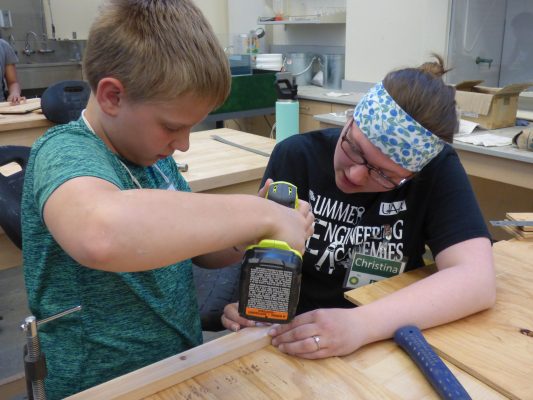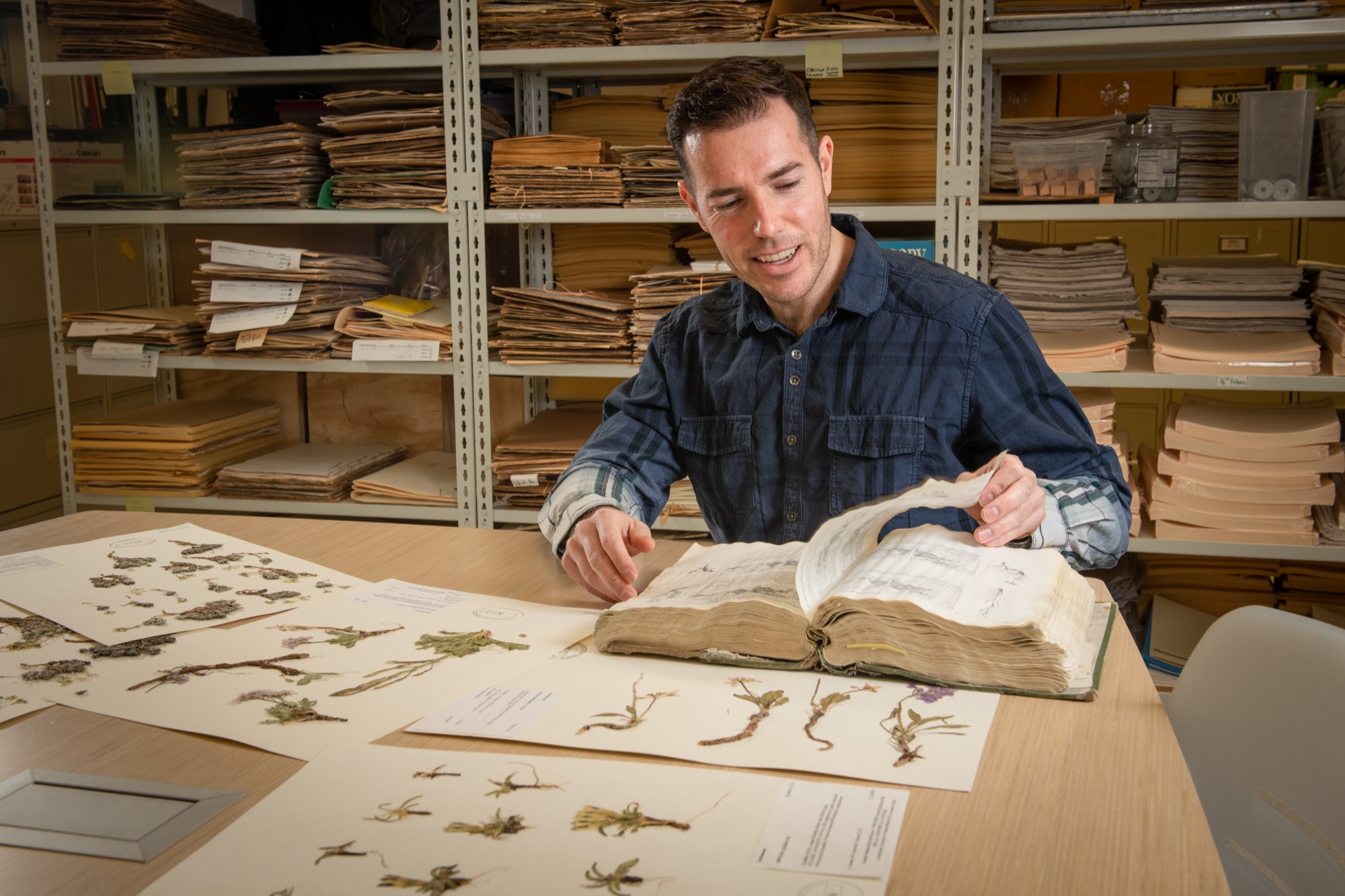‘Seeing their faces light up when a concept clicks … that’s got to be one of the best feelings.’
by Joe Selmont |
The idea of a woman engineer was almost unthinkable 100 years ago. Like so many professions that historically excluded half of the human population, engineering was considered a man's job.
This gross misperception has largely disappeared due to the tireless efforts of early pioneers. Famous engineers like Hedy Lamarr, whose frequency-hopping theory is the basis for modern communication technologies, and Stephanie Kwolek, who invented the bulletproof material Kevlar, helped to prove that women are equal to the job.
But, as UAA student Christina Young knows, there is still a lot of work to do.

Civil engineering student Christina Young (née Hoy), president of the UAA student chapter of the Society of Women Engineers, photographed in the Fluid Mechanics Lab in UAA's Engineering and Industry Building. She is finalizing preparations to become a water/wastewater engineer. (Photo by James Evans / University of Alaska Anchorage)
Young's credentials as an involved member of the UAA community run deep. She is a student employee, she's active in several campus organizations and she even met her husband, an electrical engineering student, in chemistry class in their first year. (Yes, you could say their chemistry is electrifying!) With only two semesters until she completes a B.S. in civil engineering, she intends to leave a lasting impact.
Many of Young's proudest accomplishments occurred after stepping into a leadership role. In 2016 she was elected president of UAA's chapter of the Society of Women Engineers — or SWE, pronounced "swee" by insiders.
"It was really hard at first," Young said. "All of SWE's leaders graduated in a single semester and none of us knew if we could keep things going."
Despite the initial learning curve, SWE continued to thrive and grow under Young's leadership. Participation has increased in events that empower children and teenagers to pursue careers in science, technology, engineering or math, like UAA STEM Day. Membership is strong, with third- and fourth-year students serving as mentors for first- and second-year students. Networking opportunities have greatly expanded with SWE hosting frequent meet-and-greets with working professionals, and Women in Engineering Night — an annual event that brings together over 100 students and practicing engineers.
"I love SWE's mission," Young said. "We have this wonderful community of role models that provide support from grade school all the way to becoming an actual engineer. A lot of it is formal, like the Women in Engineering Night, but so much of it is about being comfortable and gaining companionship with women in similar situations. That support network is so important."
When Young first became president, she was invited to a training session for new leaders at SWE's national conference, which is held for the benefit of both student and professional chapters.
"I learned so much," she said. "We spent four days meeting engineers from all over the country, and they taught us a ton about how to enter the workforce and negotiate fair wages. Essentially, they gave us the tools to be our own advocates."
According to the U.S. Census Bureau, women engineers took home 90 cents for every dollar made by their male colleagues in 2016. While this pay disparity is lesser than in other professions, it is still a significant shortfall.
Because of this, Young's mission has been to share the valuable advice she received at SWE's national convention, and not just with members of SWE. Through her involvement in UAA's chapter of the American Society of Civil Engineers and her seat on the Engineering Student Council, Young is able to relay opportunities and provide support to her peers.
"Christina has truly been a lynchpin for SWE during her time as president," said Dr. Jennifer Brock, interim associate dean of academics for the College of Engineering and SWE's faculty advisor.
Brock continued, "Christina's work to ensure the success of our events and of her peers is extremely important to the college and to the local community of professionals who support us."

Christina Young assists an aspiring engineer during a UAA Summer Engineering Academies session. (Photo courtesy of UAA College of Engineering)
Young's role as a mentor also extends into her student employment. In 2018, she worked for the UAA Summer Engineering Academies along with nine of her peers.
Young said, "The academies are basically a series of weeklong, engineering-themed camps for kids and teens. They're so much fun. The campers build robots, design and 3D print airplanes, or see who can construct the strongest bridge."
"Seeing their faces light up when a concept clicks," continued Young, "walking alongside them as they discover these core engineering concepts — that's got to be one of the best feelings."
As Young's time as a student at UAA comes to a close, she is finalizing her preparations to begin a career as a water/wastewater engineer, a job she knows is critical to the state of Alaska, particularly in rural communities with underdeveloped water resources.
"Working with wastewater might not be every little girl's dream," said Young. "But why shouldn't it be?"
Written by Joe Selmont, UAA College of Engineering for the Office of University Advancement
 "‘Seeing their faces light up when a concept clicks … that’s got to be one of the best
feelings.’" is licensed under a Creative Commons Attribution-NonCommercial 4.0 International License.
"‘Seeing their faces light up when a concept clicks … that’s got to be one of the best
feelings.’" is licensed under a Creative Commons Attribution-NonCommercial 4.0 International License.














